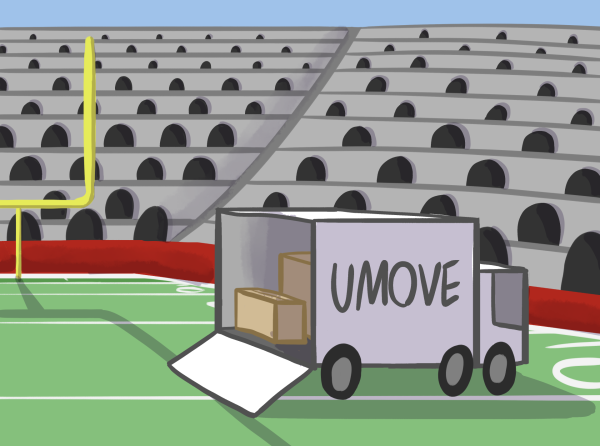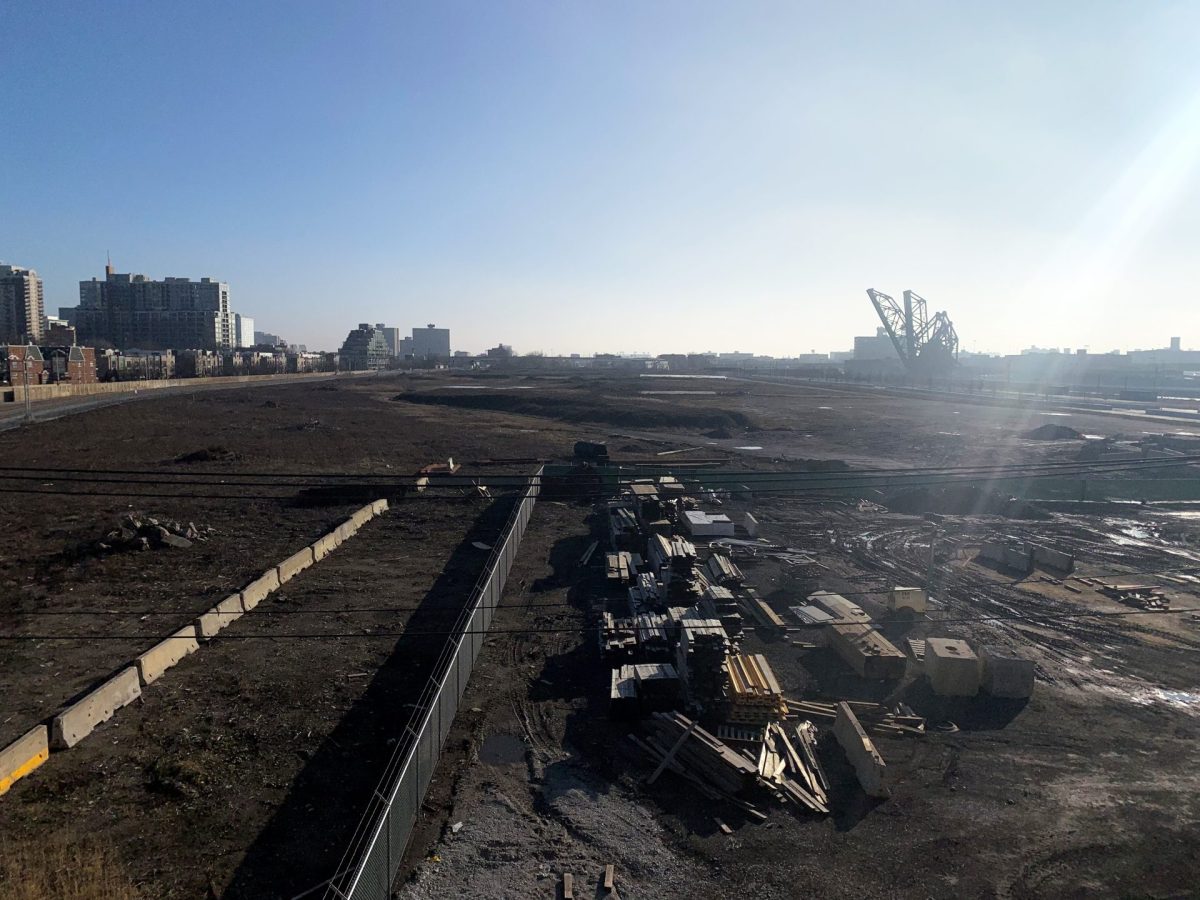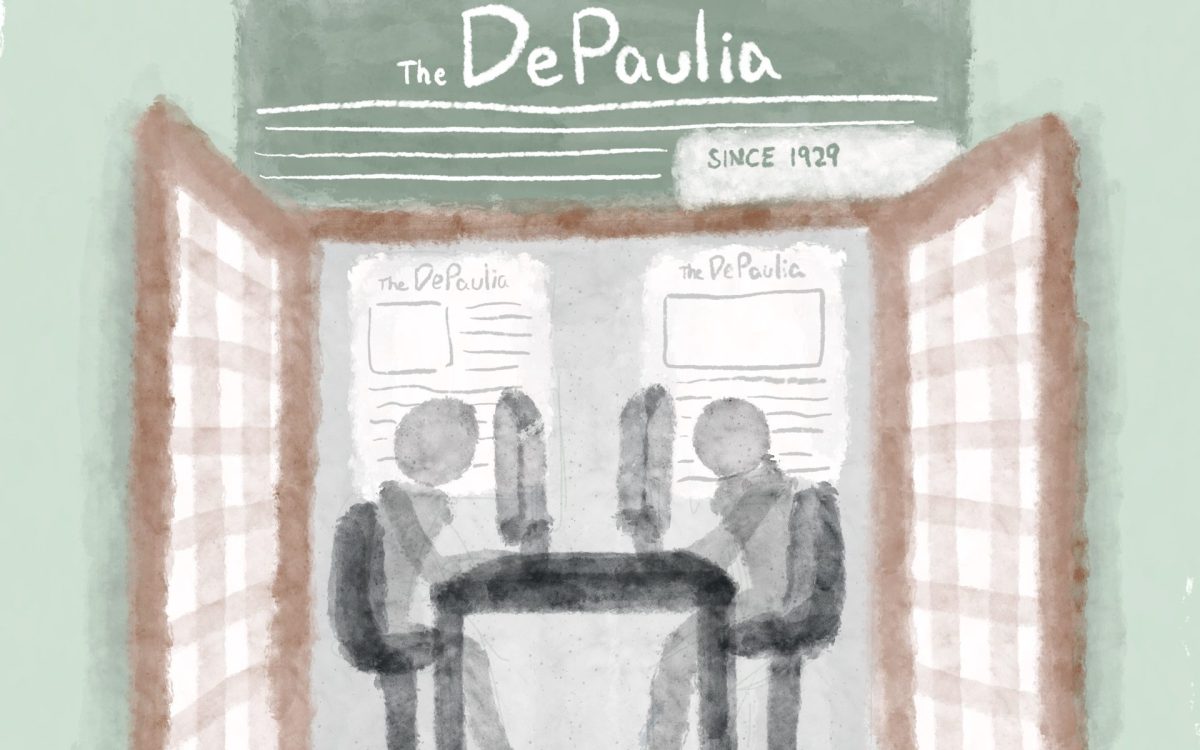I grew up in one of many divided households in Chicago. The dividing factor: sports. My mom, a Cubs fan, passively condoned my dad’s devotion to the White Sox.
I find myself somewhere in between. I’ve never cared much for football, but even I have a soft spot in my heart for the Bears.
But after more than 20 years at Soldier Field, the Bears might be leaving with hopes of building a new stadium, and the White Sox are considering moving too, according to a report by the Chicago Sun-Times, published Jan. 17.
I grew up observing my dad’s fierce enthusiasm for the White Sox, and despite the absence of football in my life, the Bears also have a cultural legacy here that I don’t want to see disappear. Without them, Chicago would feel like a different city.
But stadiums are expensive, and the teams have relied financially on the people of Chicago for their construction in the past. Taxpayers are still paying for renovations to Soldier Field and for the construction of Guaranteed Rate Field, where the Sox play.
If building new stadiums for the Bears and White Sox means relying on taxpayers once again, it’s not worth it.
Despite this, the Sox are in serious talks to build a new home in the South Loop. Their lease at Guaranteed Rate is set to expire in 2029.
Some fans are looking forward to the possibility.
“It would be nice to have a better stadium,” said junior James Stowell III, who said he’s been to about 15 Sox games over the past five years. “Also it’s better than Nashville.”
Sox Chairman Jerry Reinsdorf first floated the idea of moving the team to Tennessee in 2023. However, there hasn’t been any publicized traction made on that threat.
If they stay here, the parcel of land that could be home to a new Sox home plate lies at the intersection of Roosevelt and Clark St.
Just a few minutes walk from the Roosevelt CTA station, the riverfront property is accessible via the Red, Green and Orange CTA Lines.
All of this has made the property an attractive purchase for Related Midwest, the development company that owns the space.
The vacant 62-acre plot is called “The 78.” It’s the largest parcel of undeveloped land in downtown Chicago and is named for its potential to become the city’s 78th neighborhood.
Related Midwest has big plans for the land, according to the project’s website.
In addition to a massive University of Illinois tech research center called the Discovery Partners Institute, the developer’s vision includes “next-gen offices, inspired new homes, essential retail, local shops and Chicago’s favorite new restaurants.”
Plans for a new Sox Stadium at The 78 have yet to be finalized, although talks between Sox and city hall officials seem to be positive.
The idea of such an innovative “next-gen” addition to the city sounds promising on paper.
In reality, it’s expensive and accessible only to people who can afford to live, shop and eat there.
To the developer’s credit, part of their plan includes “investments in Chicago’s diverse workforce, in small, local, minority- and women-owned businesses.”
But if plans for the new stadium go through, that would limit other possible uses for the space, which fit with the model of “socially-responsible development” promised on The 78’s website.
Chicago needs affordable housing, not a new sports facility.
And still, the question remains: where will the funds for a new stadium come from?

It definitely shouldn’t come at the cost of Illinois residents.
The construction of Guaranteed Rate, where the Sox play now, was made possible by an increase in the tax on Chicago hotel rooms, with the city and state pitching in $5 million annually, according to the Sun-Times report.
A last-minute deal by Illinois lawmakers in 1988 to keep the Sox from pursuing a move to St. Petersburg, Florida, offered the Sox a great deal to build a new stadium across the street from Comiskey Park, their original home.
Meanwhile, the Bears are facing tax-related roadblocks in their plans to build a stadium and mixed-use entertainment district in Arlington Heights.
The team purchased a former race course there from Churchill Downs last year for $197.2 million. The team’s lease is set to expire at Soldier Field in 2033.
Taxpayers are also still on the hook for renovations there, too.
And while the Sox might not be satisfied with their current home, I don’t see anything particularly wrong with Guaranteed Rate, and others agree.
“It’s not the nicest field in the league, but it’s not the worst,” Stowell said, the DePaul junior. “There’s always room for a better stadium, although I don’t know if the taxpayers would like that that much.”
As for the Bears, the same sentiment rings true. If they can find ways to finance the new stadium and entertainment district that don’t burden taxpayers, my only disappointment would be seeing the Bears leave Chicago.
Kyra Ferber, a DePaul graduate and Bears fan from Palatine, a suburb close to Arlington Heights, feels differently.
“It would be very exciting just because it obviously, for me at least, has an emotional connection to it,” she said. “And I think it would be interesting for a lot of people, especially in Arlington Heights, because it’s obviously not as big of a city as Chicago.”
Still, Ferber said losing the Bears would be a big deal to a lot of Chicagoans who have a connection to the team.
“Football in America is just a big way of bonding for a lot of people,” she said. “The Bears mean a lot to the city of Chicago, even though recently they aren’t a very great team by any means. I still think that they do mean a lot to a lot of people.”
I’d personally like for the Bears to stay in Chicago, but Kyra is right about one thing — Chicago teams mean a lot to our city.
And while new stadiums sound exciting, I can’t justify their construction if it comes at the expense of taxpayers as it has in the past.
Our money is better spent elsewhere, particularly at a time when the city and its people are in desperate need of affordable housing.








